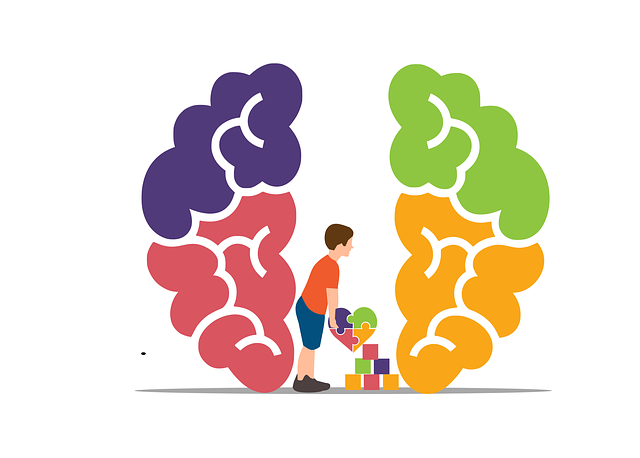In today's fast-paced world, chronic stress negatively impacts couples in Longmont, leading to communication breakdowns and resentment. To combat this, workshops focused on Longmont Couples Communication Issues Therapy offer powerful tools for identifying stress triggers, developing effective communication strategies, and fostering inner strength. These sessions include interactive exercises, role-playing scenarios, and guided meditations, creating a supportive environment for improved stress management, relaxation, and overall well-being. By integrating techniques from social skills training and promoting self-care routines, these workshops help couples navigate conflicts constructively and enhance therapy effectiveness.
Stress management workshops play a crucial role in enhancing the well-being of couples facing challenges. This article explores strategies tailored to Longmont communities, focusing on addressing communication issues often hindering progress in therapy. By understanding the impact of stress on relationships, we’ll delve into designing engaging workshops and creating safe spaces for open dialogue. We’ll uncover effective techniques to help Longmont couples overcome barriers, fostering healthier connections and improved mental health.
- Understanding Stress and Its Impact on Couples
- Designing Effective Stress Management Workshops
- Creating a Supportive Environment for Open Communication
- Strategies to Overcome Longmont Couples' Communication Issues in Therapy
Understanding Stress and Its Impact on Couples

Stress is a ubiquitous part of modern life, but its impact can be particularly profound on couples. When left unaddressed, chronic stress can lead to communication issues within relationships, exacerbating conflicts and fostering an environment of resentment. In Longmont, where mental health awareness is growing, recognizing and managing stress becomes crucial for maintaining healthy partnerships.
Workshops focused on stress management and couples communication offer valuable tools and strategies. These sessions help partners identify the signs and sources of stress in their lives and provide them with effective communication strategies to navigate challenging situations together. By fostering inner strength development, these workshops not only equip individuals but also strengthen their bonds, allowing them to support each other through life’s stresses.
Designing Effective Stress Management Workshops

Effective stress management workshops are designed to empower individuals with practical tools and techniques for navigating life’s challenges. When planning such sessions in Longmont, it’s crucial to consider the target audience—whether it’s couples dealing with communication issues or professionals seeking conflict resolution techniques. The curriculum should include a mix of interactive Self-Awareness Exercises and theoretical Mental Health Education Programs Design to foster engaging learning experiences.
Workshop facilitators can enhance their approach by incorporating various strategies, such as role-playing scenarios for conflict resolution techniques or guided meditations for relaxation. By balancing education with hands-on activities, these workshops become dynamic environments where participants can gain insights into managing stress and improving their overall well-being, ultimately addressing Longmont Couples Communication Issues in a therapeutic setting.
Creating a Supportive Environment for Open Communication

In designing stress management workshops, creating a supportive environment that encourages open communication is paramount. This involves establishing a safe and non-judgmental space where participants feel comfortable sharing their experiences and perspectives. Facilitators should model active listening, ensuring every voice is heard and respected, which can significantly enhance the therapeutic impact of these sessions. Incorporating interactive activities and group discussions allows for a dynamic exchange of ideas, fostering deeper connections among attendees, especially in addressing Longmont couples communication issues.
The design of mental health education programs should prioritize not only conveying information but also cultivating an atmosphere that promotes self-care practices. By integrating risk management planning for mental health professionals into the workshop curriculum, facilitators can empower participants with strategies to navigate stress and its underlying causes. This holistic approach not only benefits individuals in their personal lives but also enhances their ability to provide effective therapy, thereby contributing to better mental health outcomes for the community at large.
Strategies to Overcome Longmont Couples' Communication Issues in Therapy

Many couples in Longmont struggle with communication issues that hinder their therapy progress. Overcoming these challenges requires a strategic approach that goes beyond traditional talk therapy. Workshops focused on improving Longmont Couples Communication Issues Therapy often incorporate techniques from social skills training to enhance active listening, non-verbal cues, and open dialogue. By fostering better understanding and empathy, couples can navigate conflicts more constructively.
Additionally, building resilience through structured activities and self-care routine development for better mental health plays a crucial role in these workshops. Equipping individuals with tools to manage stress, set boundaries, and prioritize their well-being empowers them to engage in healthier communication patterns. This holistic approach not only strengthens the couple’s bond but also paves the way for more effective therapy sessions.
Stress management workshops can be a powerful tool for couples seeking to improve their relationships and well-being, especially when tailored to address specific challenges like Longmont couples’ communication issues in therapy. By creating a supportive environment and employing effective strategies, these workshops empower partners to navigate stress together, fostering healthier interactions and enhancing overall relationship satisfaction.














